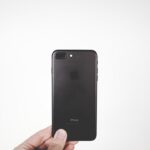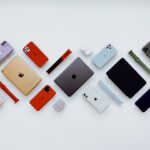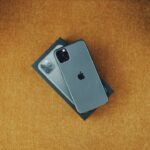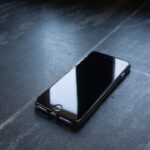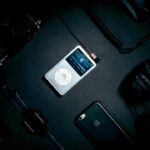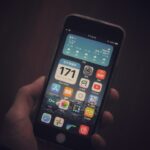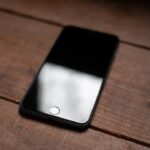The locked iPhone market represents a unique segment within the broader smartphone ecosystem, characterized by devices that are tethered to specific carriers and cannot be used with other networks without unlocking. This market has gained traction over the years, particularly as consumers seek affordable alternatives to brand-new, unlocked devices. The appeal of locked iPhones lies in their often lower price points, which can make them an attractive option for budget-conscious buyers.
However, the intricacies of this market extend beyond mere pricing; they encompass a range of factors including carrier contracts, device compatibility, and the implications of ownership. As the smartphone landscape continues to evolve, the locked iPhone market has adapted to meet the demands of various consumer segments. With the proliferation of mobile technology and the increasing reliance on smartphones for daily activities, understanding the dynamics of locked iPhones is essential for both buyers and sellers.
This article delves into the multifaceted nature of the locked iPhone market, exploring its appeal, demographics, legal considerations, and future trends.
Key Takeaways
- Locked iPhones are in high demand in the secondhand market due to their lower prices and potential for unlocking.
- Buyers are attracted to locked iPhones for their affordability and the opportunity to unlock them for use with their preferred carrier.
- There are different types of locked iPhones, including carrier-locked, iCloud-locked, and activation-locked devices.
- Demographic analysis shows that a wide range of consumers, including budget-conscious individuals and tech-savvy users, are interested in buying locked iPhones.
- Resellers play a significant role in the locked iPhone market, offering unlocking services and providing a platform for buying and selling locked devices.
The Appeal of Locked iPhones for Buyers
One of the primary attractions of locked iPhones is their affordability. Carriers often subsidize the cost of these devices as part of a contract agreement, allowing consumers to acquire high-end technology at a fraction of the retail price. For instance, a buyer might find a locked iPhone 13 for significantly less than its unlocked counterpart, making it an appealing option for those who do not mind being tied to a specific carrier for a set period.
This financial incentive is particularly compelling for younger consumers or those with limited budgets who still desire a premium smartphone experience. Moreover, many buyers are drawn to the reliability and performance associated with Apple products. The iPhone brand is synonymous with quality, and even locked devices maintain the high standards that Apple is known for.
Buyers often perceive locked iPhones as a smart investment, especially when they consider the resale value of these devices. Even if they are initially locked to a carrier, many users find that they can unlock their phones after fulfilling their contract obligations, thus enhancing their long-term value.
Understanding the Different Types of Locked iPhones

Locked iPhones can be categorized into several types based on their carrier restrictions and unlocking policies. The most common type is the carrier-locked iPhone, which is sold directly through mobile service providers. These devices are typically tied to specific plans and require users to remain with the carrier for a predetermined period—often 12 to 24 months—before they can unlock their phones.
This model is prevalent in markets where carriers subsidize device costs in exchange for long-term contracts. Another category includes region-locked iPhones, which are restricted not only by carrier but also by geographical location. For example, an iPhone purchased in one country may not function on networks in another country due to regional locking policies.
This can pose challenges for travelers or expatriates who may wish to use their devices abroad. Additionally, there are factory-locked iPhones that have not been activated or linked to any carrier account. These devices may be sold at a discount but still require activation through a specific carrier.
Who Buys Locked iPhones: Demographic Analysis
| Age Group | Percentage of Buyers |
|---|---|
| 18-25 | 30% |
| 26-35 | 25% |
| 36-45 | 20% |
| 46-55 | 15% |
| 56 and above | 10% |
The demographic landscape of locked iPhone buyers is diverse, encompassing various age groups, income levels, and technological preferences. A significant portion of buyers consists of younger consumers, particularly millennials and Gen Z individuals who are often more price-sensitive and inclined to seek out deals. These demographics are typically more familiar with technology and are willing to navigate the complexities of carrier contracts in exchange for lower upfront costs.
In addition to younger buyers, families and budget-conscious individuals also represent a substantial segment of the locked iPhone market. Parents looking to provide their children with reliable smartphones may opt for locked devices as a cost-effective solution. Furthermore, individuals in emerging markets where disposable income is limited may find locked iPhones appealing due to their affordability compared to unlocked models.
This demographic diversity highlights the broad appeal of locked iPhones across different socioeconomic backgrounds.
The Role of Resellers in the Locked iPhone Market
Resellers play a pivotal role in the locked iPhone market by acting as intermediaries between carriers and consumers. These entities often acquire large quantities of locked devices from carriers or wholesalers and then resell them at competitive prices. Resellers can offer various incentives such as warranties or return policies that may not be available through traditional carrier channels, making them an attractive option for buyers.
Moreover, resellers often have a deep understanding of market trends and consumer preferences, allowing them to tailor their offerings accordingly. They may specialize in specific models or brands, providing customers with a curated selection that meets their needs. However, it is essential for buyers to conduct due diligence when purchasing from resellers, as not all resellers operate with transparency or integrity.
Ensuring that devices are not stolen or blacklisted is crucial for maintaining trust in this segment of the market.
Legal and Ethical Considerations for Buying Locked iPhones

Navigating the legal and ethical landscape surrounding locked iPhones requires careful consideration from both buyers and sellers. One significant legal aspect involves understanding carrier contracts and obligations. Buyers must be aware that purchasing a locked device often comes with stipulations regarding usage and unlocking procedures.
Violating these terms can lead to penalties or even legal action from carriers. Ethically, there are concerns regarding the resale of locked devices without proper disclosure about their status. Buyers should be informed if a device is still under contract or if it has been reported lost or stolen.
Transparency is vital in maintaining ethical standards within the market. Additionally, unlocking practices vary by region; some jurisdictions have laws that protect consumers’ rights to unlock their devices after fulfilling contractual obligations, while others may impose restrictions that complicate this process.
The Risks and Benefits of Buying Locked iPhones
While there are numerous benefits associated with purchasing locked iPhones, potential buyers must also weigh the risks involved. One significant advantage is cost savings; locked devices are generally more affordable than their unlocked counterparts, making them accessible to a broader audience. Additionally, buyers can enjoy the same high-quality features and performance associated with Apple products without incurring substantial debt.
However, risks include potential limitations on network compatibility and restrictions on unlocking procedures. Buyers may find themselves unable to switch carriers easily or may face challenges if they wish to travel internationally with their device. Furthermore, if a buyer fails to fulfill their contract obligations, they could incur additional fees or penalties from their carrier.
Understanding these risks is crucial for making informed purchasing decisions in the locked iPhone market.
How to Sell Locked iPhones: Tips for Sellers
For individuals looking to sell locked iPhones, several strategies can enhance their chances of success in this competitive market. First and foremost, sellers should ensure that their devices are in good condition and free from damage. Providing clear photographs and detailed descriptions can help attract potential buyers who are seeking quality products.
Additionally, sellers should be transparent about the device’s status—specifically whether it is still under contract or if there are any outstanding payments owed to the carrier. This transparency builds trust with potential buyers and can lead to smoother transactions. Utilizing online marketplaces or social media platforms can also expand reach; sellers should consider listing their devices on popular sites where tech-savvy consumers frequently shop.
The Impact of Locked iPhones on the Secondhand Market
The presence of locked iPhones has significantly influenced the secondhand smartphone market by creating a distinct category that appeals to budget-conscious consumers. As more individuals seek affordable options, locked devices have carved out a niche that complements unlocked models rather than competing directly against them. This segmentation allows sellers to target specific audiences while providing buyers with diverse choices based on their needs and financial constraints.
Moreover, the secondhand market benefits from the availability of unlocked devices after consumers fulfill their contracts. Once unlocked, these phones can be resold at higher prices than their locked counterparts due to increased demand for flexibility among users who wish to switch carriers or travel internationally. This dynamic creates a cycle where locked devices eventually transition into unlocked status, further enriching the secondhand market landscape.
Trends and Future Outlook for the Locked iPhone Market
As technology continues to advance and consumer preferences evolve, several trends are shaping the future outlook for the locked iPhone market. One notable trend is the increasing prevalence of financing options offered by carriers and retailers, allowing consumers to pay for devices in installments rather than upfront costs. This shift could lead to greater adoption of locked devices as more individuals find it financially feasible to acquire high-end smartphones without significant initial investments.
Additionally, as unlocking policies become more standardized across regions due to legal changes and consumer advocacy efforts, buyers may experience fewer restrictions when it comes to switching carriers or traveling internationally with their devices. This could enhance the appeal of locked iPhones as consumers gain more confidence in their ability to unlock devices when needed.
The Ongoing Demand for Locked iPhones
The demand for locked iPhones remains robust as consumers continue to seek affordable alternatives within an increasingly competitive smartphone market. With various factors influencing buyer behavior—from financial considerations to brand loyalty—the locked iPhone segment is poised for continued growth. As technology evolves and consumer preferences shift, understanding this market’s dynamics will be essential for both buyers and sellers navigating its complexities.
FAQs
What are locked iPhones?
Locked iPhones are devices that are tied to a specific carrier and cannot be used with a different carrier’s SIM card without being unlocked.
Who buys locked iPhones?
There are various individuals and companies that buy locked iPhones, including phone repair shops, online retailers, and individuals looking to unlock and use the device with their own carrier.
Why do people buy locked iPhones?
People buy locked iPhones for a variety of reasons, including to unlock and use with their own carrier, to repair and resell, or to use for parts.
Can I sell my locked iPhone?
Yes, you can sell your locked iPhone to buyers who specialize in purchasing locked devices. However, the price you receive may be lower than an unlocked iPhone due to the limitations of a locked device.
How can I unlock my locked iPhone?
You can unlock your locked iPhone by contacting your carrier and requesting an unlock, or by using a third-party unlocking service. Keep in mind that unlocking your iPhone may void its warranty and could have legal implications.



